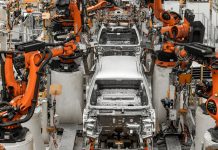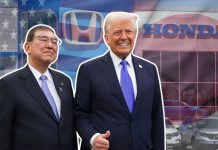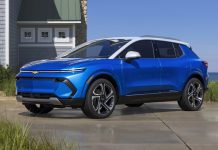Automakers have made some bold moves concerning electric vehicles, with many franchise dealers wondering if the future of their business is in jeopardy. Today on Inside Automotive, we’re pleased to welcome Len Bellavia, Founding Partner of the law firm of Bellavia Blatt, PC, to help us sort through the announcements and concerns. We’ll also get his perspective on the future of the overall franchised dealer network.
Len has spent his life in automotive and represents thousands of dealerships across the country. He has also commenced mass legal action on behalf of hundreds of franchise dealers in the United States District Courts against Daimler Chrysler, Ford, GM, Snap-On Tools, and the Tribune Company.
In light of many announcements from OEMs hinting at their desires for a direct-to-consumer sales model, Bellavia says that franchise dealers from all around the country are wondering if they need to take action. From his perspective, the consensus among dealers seems to be that these issues generally resolve themselves. The market seeks its own level, and the initiatives from Ford, Volvo, and others are based on current statutory law, which all 50 states prohibit.
In the end, if franchise dealers are not involved in setting the price and interacting with consumers, there are existing statutory prohibitions that would prohibit manufacturers from doing direct selling programs.
The onus is now on dealer advisory boards, dealer councils, state associations, and dealers to negotiate their future positions, says Bellavia. However, lawsuits between OEMs and dealers can lead to strained relationships.
“The entire future of the franchise system is at play here,” says Bellavia. “Dealers need to come to terms with the fact that state associations by and large have done an excellent job at giving dealers statutory protections. Now, it’s up to the franchise dealers themselves to envoke those protections.”
So, what makes manufacturers like Tesla and Rivian different? Because they are not legacy automakers, their business plans were executed without franchised dealers. While the Tesla model is instructive, explains Bellavia, it does not give the legacy automakers free rein to emulate it.
As opposed to fighting a legal battle with the manufacturers, car dealers can file injunctions against the direct selling initiatives and shut them down relatively quickly. Bellavia thinks car dealers and OEMs should come to the table and try to coexist within a reasonable framework. However, if the OEMs push the boundaries, car dealers have a good legal standing to fight them.
In his opinion, CEOs like Jim Farley are testing the waters with these comments, and if there is no tangible pushback from franchise dealers, they will keep pressing forward.
Did you enjoy this interview with Len Bellavia? Please share your thoughts, comments, or questions regarding this topic by submitting a letter to the editor here, or connect with us at newsroom@cbtnews.com.
Be sure to follow us on Facebook and Twitter to stay up to date or catch up on all of our podcasts on demand.
While you’re here, don’t forget to subscribe to our email newsletter for all the latest auto industry news from CBT News.









